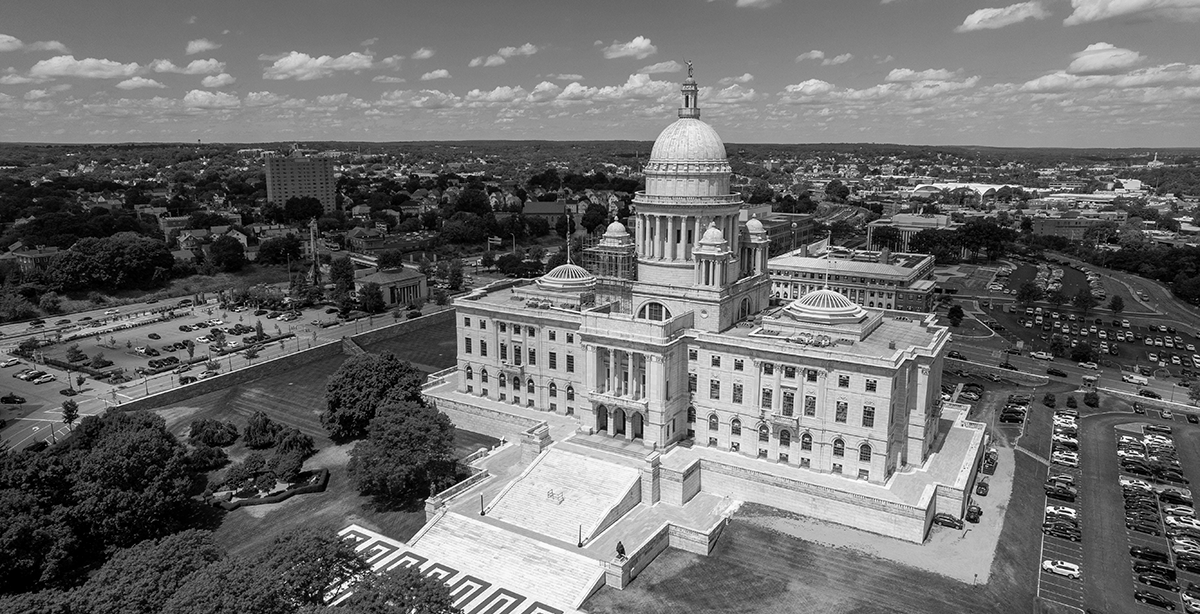The Rhode Island General Assembly adjourned on June 20th, ending the 164-day legislative session. During the 2025 session, 2600 bills were introduced, 384 of which were signed into law by Governor Dan McKee (D). The Rhode Island General Assembly dealt with numerous high-profile issues, including HB 5726, which bans the censorship of library materials, SB 359, which prohibits the sale of assault weapons, and HB 5042, which repeals provisions in state law allowing for deferred deposit and payday lending. Rhode Island also addressed many other important topics this session, including healthcare and the state's housing crisis.
Housing
At the beginning of the 2025 legislative session, House Speaker Joseph Shekarchi (D), announced a 12-bill housing package to address the state's housing crisis. Most of the introduced bills came as a result of meetings and recommendations from the Special Legislative Commission to Affordable Housing and Special Legislative Commission to Study Land Use, who have been meeting for three years on these issues. Some of the legislation passed this session include HB 5803, which will establish an electronic permitting platform for all state and local permitting, and HB 5800, which will require municipalities to provide for mixed-use zoning in some or all areas of their commercial zoning districts. The legislature also passed HB 5804, which codifies the structure of the State Building Code Office and clarifies the role of the State Building Code Commissioner. According to the Speaker, this legislation will streamline the process and centralize the duties of state officials, employees, commissions, and boards related to building codes and permitting.
Payday Loans
On July 1st, Rhode Island Governor Daniel McKee (D) signed HB 5042 into law. “As Rhode Islanders struggle to make ends meet in an increasingly uncertain economy, one threat continues to fly under the radar while quietly wreaking havoc on our communities – payday lending. These predatory loan shops lure in the most vulnerable among us with what looks like a lifeline, but is in truth a trap. It’s time for our state to close this loophole once and for all,” said the sponsor upon signature. The bill repeals the provision of state law that allows for deferred deposit lending, also known as payday lending. The new law caps interest rates for small loans at 36% annual interest, effectively ending the practices of payday lending in the state. This measure was part of a multi-year effort by state officials to regulate this type of lending practice. The measure is set to take effect January 1st, 2027.
Healthcare
The Rhode Island legislature passed several bills dealing with healthcare issues this session. On June 26th, Governor McKee signed SB 172, which puts an interest rate cap on medical debt, and SB 169, which prohibits credit bureaus from reporting consumers' medical debt. On July 2nd, the Governor signed SB 166, which will allow pharmacists to administer vaccines to children as young as three years old. Lastly, Rhode Island passed SB 168, or the Rhode Island Prior Authorization Reform Act of 2025. This measure establishes a 3-year pilot program that will prohibit insurers from imposing prior authorization requirements on any admission, service, or treatment ordered by an in-network primary care provider. This measure will take effect on October 1st, 2025, and will sunset on October 1st, 2028.
Budget
On June 20th, the Rhode Island Legislature approved the fiscal year 2026 budget. However, notably, Governor Dan McKee (D) refused to sign the budget, saying the budget imposed “unnecessary” taxes and fees. The budget was enacted without the Governor’s signature on July 1st. The FY 2026 budget totaled $14.6 billion and included investments for many projects and programs, including:
- $13,759,400 to the University of Rhode Island for the PFAS Removal Water Treatment Plant.
- $1.8 million to the Executive Office of Health and Human Services for the maintenance and operation of the 988 Hotline.
- $25,786,500 to be allocated to the Executive Office of Commerce to invest in broadband projects to provide high-speed, reliable internet to all Rhode Islanders.
To pay for these financial expenditures, the legislature explored several new revenue streams. The final budget included an increase in the conveyance tax on properties valued at over $800,000 and a non-owner occupied property tax on residential properties assessed at over $1 million.
Looking Forward
The Rhode Island legislative session concluded on June 20th and will not reconvene until January 2026. In 2026, Rhode Island will hold its gubernatorial election, where Governor McKee will seek reelection. The Rhode Island State House and State Senate will also hold elections in 2026. While Democrats expect to keep their supermajority in the State, Republican officials have said they hope to capitalize on some of Rhode Island Democrats' more contentious policy initiatives this session to make inroads in the 2026 election cycle.
